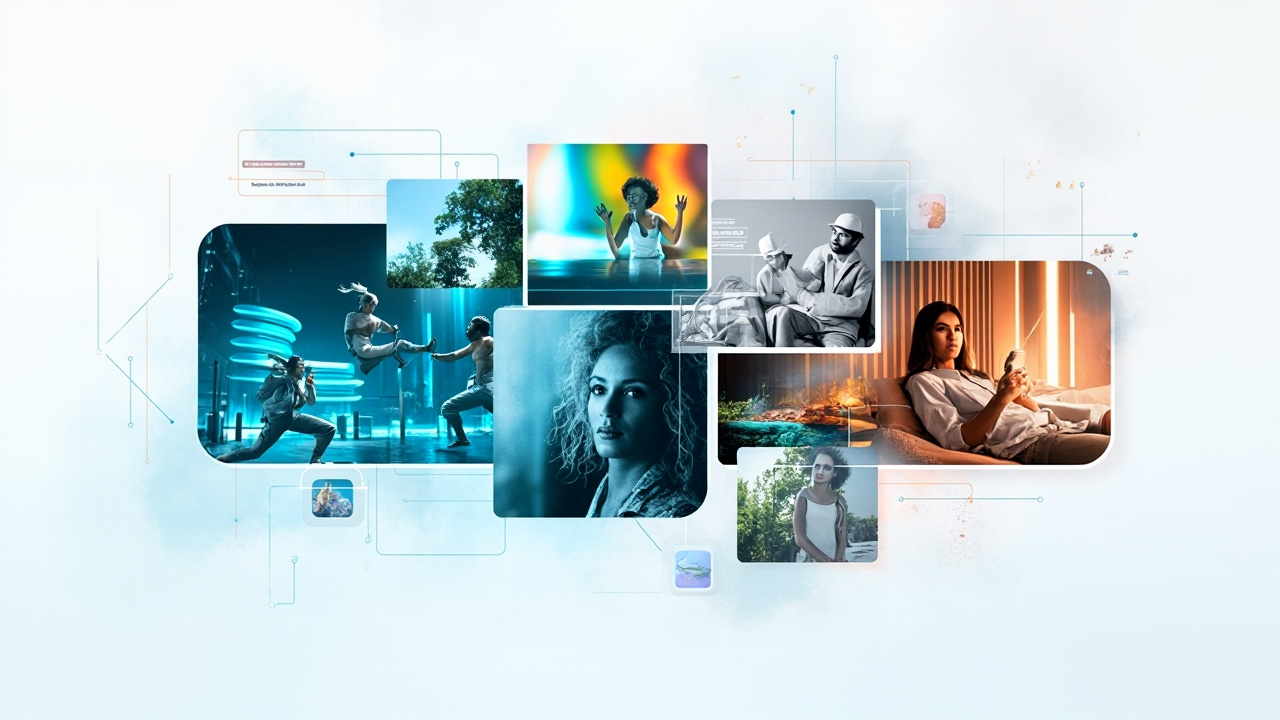In the ever-evolving world of marketing, businesses are constantly searching for that elusive edge to capture consumer attention, convey their value, and cultivate lasting relationships. Over the past few decades, marketing has transformed from straightforward advertising to a complex blend of art and science, driven by data, consumer psychology, and technological advancement. As companies navigate this dynamic landscape, understanding the intricacies of modern marketing becomes not only beneficial but crucial for survival and growth.
Today, marketers face an array of challenges. From the saturation of digital channels to the increasing demand for personalization, the task of standing out is more formidable than ever. Consumers are savvier, more informed, and less tolerant of traditional push advertising. They crave experiences and connections, seeking brands that resonate with their values and lifestyles. For businesses, this means moving beyond mere transactions to create meaningful engagements.
In this comprehensive exploration, we delve into the core strategies and emerging trends shaping the marketing landscape. We will uncover how data-driven insights are transforming marketing strategies, the role of artificial intelligence in enhancing marketing efficiency, and how platforms like GenQE are subtly revolutionizing software quality to support seamless customer experiences. Through detailed analysis, we aim to equip you with the knowledge and tools to navigate the intricacies of modern marketing successfully.
The Evolution of Marketing: From Traditional to Digital

Marketing has come a long way since the days of simple print ads and radio jingles. The transition from traditional to digital marketing has not only changed the medium but also the message. Understanding this evolution is key to appreciating the current marketing environment and predicting future trends.
The Rise of Digital Marketing
The digital revolution has disrupted traditional marketing channels, offering new ways to connect with consumers. With the internet’s inception, marketers gained access to a global audience, which was both an opportunity and a challenge. The emergence of social media platforms, search engines, and e-commerce sites provided marketers with unprecedented insights into consumer behavior, enabling more targeted and personalized marketing strategies.
For instance, consider how Netflix leverages data analytics to recommend content to its users. By analyzing viewing habits, Netflix can suggest shows and movies tailored to individual preferences, enhancing user engagement and satisfaction. This data-driven approach is a cornerstone of digital marketing, allowing businesses to provide personalized experiences that resonate with their audience.
“Digital marketing has transformed the way brands interact with consumers, offering real-time engagement and measurable outcomes.”
The impact of digital marketing is also evident in small businesses and startups. These companies can now compete with larger corporations by reaching niche audiences through targeted digital campaigns. The democratization of marketing tools and platforms has empowered smaller players to punch above their weight, fostering innovation and competition.
The Role of Data and Analytics
Data is the backbone of modern marketing strategies. By analyzing consumer interactions and behaviors, marketers can tailor their messages to meet specific needs and preferences. Advanced analytics tools allow for the segmentation of audiences, prediction of trends, and measurement of campaign effectiveness. The ability to harness data effectively distinguishes successful marketers from the rest.
For example, consider how Amazon uses data to optimize its recommendation engine. By analyzing purchase history, browsing behavior, and even abandoned shopping carts, Amazon can suggest products that a customer is more likely to buy. This not only increases sales but also enhances the customer experience by making shopping more convenient and personalized.
Moreover, the integration of platforms like GenQE in the software development process ensures that the tools used for data analysis are reliable and efficient, thus supporting seamless marketing operations.
Challenges in Digital Marketing
Despite the opportunities, digital marketing presents its own set of challenges. The sheer volume of digital content can make it difficult for brands to stand out. Moreover, privacy concerns and data protection regulations have made it imperative for marketers to be transparent and ethical in their data collection and usage.
One of the significant challenges is the issue of data privacy. With regulations like the General Data Protection Regulation (GDPR) in the EU, marketers must ensure compliance while still collecting and using data to drive strategies. This adds a layer of complexity that requires careful navigation to avoid legal pitfalls and maintain consumer trust.
Transitioning to the digital era has not been without hurdles, but it has paved the way for innovation and the integration of AI-driven solutions like GenQE.
Understanding Consumer Behavior: The Psychology of Marketing

At the heart of every successful marketing campaign is a deep understanding of consumer psychology. Knowing what motivates consumers, how they make decisions, and what influences their behavior is critical for crafting messages that resonate and drive action.
The Science Behind Consumer Decisions
Consumers are not always rational. Their decisions are influenced by various factors, including emotions, social proof, and cognitive biases. Marketers who understand these psychological principles can craft messages that effectively tap into these emotional triggers.
For instance, the concept of FOMO (Fear of Missing Out) is a powerful motivator. Brands like Apple leverage this by creating anticipation and exclusivity around their product launches, prompting consumers to act quickly to avoid missing out on the latest technology.
“Understanding consumer psychology is the key to unlocking the full potential of marketing strategies.”
Another example is the use of color psychology in marketing. Different colors can evoke different emotions and associations. Fast-food chains often use red and yellow in their branding because these colors are said to stimulate appetite and attract attention.
Personalization and Consumer Expectations
Today’s consumers expect brands to understand their needs and preferences. Personalization goes beyond using a customer’s name in an email; it involves delivering relevant content, offers, and experiences that align with individual preferences. This requires sophisticated data analysis and segmentation, often supported by AI technologies like GenQE, which can optimize consumer interactions by ensuring seamless software experiences.
Consider Spotify’s “Discover Weekly” playlist, which uses algorithms to curate a personalized music playlist for each user based on their listening history. This level of personalization not only enhances user satisfaction but also increases engagement and retention.
The expectation for personalization extends to customer service as well. Consumers expect quick, personalized responses to their queries, which can be facilitated by chatbots and AI-driven customer service platforms.
The Impact of Social Proof
Social proof, the idea that people are influenced by the actions and opinions of others, is a powerful force in marketing. Reviews, testimonials, and influencer endorsements can significantly impact consumer perceptions and decisions. Effective use of social proof can enhance credibility and drive conversions.
For example, the success of platforms like TripAdvisor and Yelp is largely due to their reliance on user-generated reviews. Consumers trust the opinions of their peers, and positive reviews can significantly influence purchasing decisions.
Additionally, influencer marketing has gained traction as a form of social proof. Brands collaborate with influencers to reach specific audiences, leveraging the trust and credibility that these influencers have built with their followers.
As we delve deeper into the role of technology in marketing, it’s important to recognize how psychological insights are integrated into digital strategies.
The Power of Content Marketing: Creating Value and Building Trust

Content marketing has emerged as a powerful strategy for engaging audiences and building brand authority. By providing valuable, relevant content, brands can establish trust and foster long-term relationships with their audience.
Crafting Compelling Content
Creating high-quality content that captivates and informs is an art. Whether it’s blog posts, videos, or podcasts, content should address the needs and interests of the target audience. Storytelling is an essential element, as it helps create an emotional connection and makes the content memorable.
For instance, brands like Red Bull have mastered the art of storytelling through content marketing. Their extreme sports videos and documentaries not only entertain but also align perfectly with their brand image of energy and adventure.
“In a world saturated with information, content that educates, entertains, and inspires stands out.”
Another example is HubSpot’s blog, which provides valuable insights and tips on inbound marketing. By positioning themselves as thought leaders, HubSpot builds trust with its audience, ultimately driving leads and conversions.
Leveraging Multiple Channels
Effective content marketing requires a multi-channel approach. Different platforms have different strengths, and successful marketers tailor their content to fit the medium. Social media is excellent for engaging in real-time, while blogs provide a platform for in-depth exploration of topics. Video content is particularly powerful for storytelling and demonstrating products in action.
Consider how brands like Nike utilize multiple channels to reach their audience. Their social media campaigns engage users through interactive content and challenges, while their YouTube channel features inspiring stories of athletes and product showcases.
Podcasts have also become a popular channel for content marketing. Companies like Slack use podcasts to share insights and stories from industry leaders, providing value to their audience while subtly promoting their brand.
Measuring Content Effectiveness
Measuring the impact of content marketing is crucial for optimizing strategies. Metrics such as engagement rates, conversion rates, and return on investment (ROI) provide insights into what works and what doesn’t. AI platforms like GenQE can support this by ensuring that the software delivering content is robust and user-friendly, enhancing the overall consumer experience.
For example, a company might use analytics tools to track the performance of their blog posts, identifying which topics resonate most with their audience. This data can inform future content strategies, ensuring that efforts are focused on high-impact areas.
Moreover, A/B testing can be used to refine content and improve engagement. By testing different headlines, formats, or calls to action, marketers can determine which elements are most effective in driving desired outcomes.
As we explore the impact of technology on marketing, the role of AI in optimizing content delivery and engagement becomes increasingly evident.
The Role of Technology in Modern Marketing: AI and Beyond

The integration of technology in marketing is not just a trend; it’s a necessity. From AI to automation, technology is reshaping the way marketers operate, making processes more efficient and effective.
AI: Transforming Marketing Strategies
Artificial intelligence is revolutionizing marketing by providing advanced tools for data analysis, customer segmentation, and personalization. AI-driven platforms can predict consumer behaviors, automate repetitive tasks, and deliver personalized experiences at scale.
For instance, AI chatbots are increasingly used in customer service to handle inquiries and provide assistance. These chatbots can manage multiple interactions simultaneously, providing quick resolutions and freeing up human agents for more complex tasks.
“AI is not just a tool; it’s a catalyst for innovation in marketing.”
AI also plays a critical role in programmatic advertising, where algorithms determine the best placements for ads in real-time, optimizing for factors like audience, context, and budget. This level of automation and precision ensures that marketing messages reach the right audience at the right time.
Automation: Streamlining Marketing Processes
Marketing automation streamlines campaigns, from email marketing to social media management. It allows marketers to focus on strategy and creativity, rather than getting bogged down by repetitive tasks. Platforms like GenQE, while primarily focused on software quality, illustrate the potential of AI and automation in enhancing operational efficiency.
Consider how email marketing platforms like Mailchimp use automation to personalize and schedule campaigns. By segmenting audiences and automating follow-up emails, marketers can nurture leads more effectively, increasing the likelihood of conversion.
Automation also extends to social media management. Tools like Hootsuite and Buffer allow marketers to schedule posts, track engagement, and analyze performance across multiple platforms from a single dashboard.
The Future of Martech
The future of marketing technology lies in its ability to integrate seamlessly into existing systems and enhance them. As new technologies emerge, marketers must stay informed and be ready to adapt. The goal is to create a cohesive ecosystem that supports innovative marketing strategies and delivers exceptional consumer experiences.
For example, the rise of voice search and smart assistants is reshaping how consumers interact with technology. Marketers must optimize their content and strategies for voice search to remain relevant and accessible.
Additionally, the integration of Internet of Things (IoT) devices offers new opportunities for data collection and personalization. Smart devices can provide insights into consumer behavior, enabling more targeted and relevant marketing efforts.
As we move towards exploring innovative strategies, the foundational role of technology in enhancing marketing capabilities cannot be overstated.
Innovative Strategies for Engaging the Modern Consumer

In a world where consumers are bombarded with messages, innovative strategies are essential for capturing attention and fostering engagement. Marketers must think outside the box and leverage new trends to stay ahead of the competition.
Experiential Marketing: Creating Memorable Experiences
Experiential marketing focuses on creating immersive experiences that engage consumers on a personal level. Whether through events, virtual reality, or interactive campaigns, the goal is to create memorable interactions that leave a lasting impression.
For instance, Guinness’s “Guinness Storehouse” in Dublin offers visitors an immersive experience that includes tasting sessions and interactive exhibits. This not only promotes the brand but also strengthens emotional connections with consumers.
“In a digital age, real-world experiences stand out, creating lasting impressions and deepening brand loyalty.”
Technology also plays a role in experiential marketing. Virtual reality (VR) allows brands to create immersive experiences without the constraints of physical space. For example, IKEA uses VR to let customers visualize furniture in their homes, enhancing the shopping experience.
The Rise of Influencer Marketing
Influencer marketing leverages the reach and trust of social media personalities to promote brands authentically. Choosing the right influencers who align with brand values and have genuine connections with their audience is crucial for success.
Consider the partnership between Daniel Wellington and various social media influencers. By sending influencers their watches and encouraging them to share photos on Instagram, Daniel Wellington gained significant brand exposure and credibility among younger audiences.
Influencer marketing can also involve micro-influencers, who, despite having smaller followings, often have highly engaged audiences. Brands can tap into these niche markets to reach specific demographics effectively.
Embracing Sustainability
Consumers are increasingly concerned about sustainability and ethical practices. Brands that embrace sustainability not only appeal to environmentally conscious consumers but also differentiate themselves in the market. Highlighting sustainable practices in marketing campaigns can enhance brand image and loyalty.
Patagonia is a prime example of a brand that has successfully incorporated sustainability into its marketing strategy. Their “Don’t Buy This Jacket” campaign encouraged consumers to buy less and think about environmental impact, resonating with eco-conscious consumers and reinforcing their brand values.
Similarly, the beauty industry has seen a rise in brands promoting cruelty-free and sustainable products. These initiatives not only attract environmentally conscious consumers but also build trust and loyalty.
As we explore building lasting connections, these innovative strategies offer pathways to deeper and more meaningful consumer engagement.
Building Lasting Connections: Nurturing Customer Relationships

Marketing doesn’t end with a sale; it’s about building long-term relationships that foster loyalty and advocacy. Understanding how to nurture these connections is essential for sustained business success.
The Importance of Customer Retention
Retaining existing customers is often more cost-effective than acquiring new ones. Loyal customers not only contribute to revenue but also act as brand advocates. Implementing loyalty programs and personalized communication can enhance customer retention.
For example, Starbucks’ loyalty program rewards customers with points for every purchase, which can be redeemed for free items. This not only encourages repeat business but also fosters a sense of belonging and appreciation.
“Loyal customers are the backbone of any successful business, providing stability and advocacy.”
Personalized communication is another key aspect of customer retention. By segmenting customers based on their behavior and preferences, brands can tailor their messages and offers to individual needs, increasing satisfaction and loyalty.
Leveraging Feedback and Reviews
Customer feedback is a valuable resource for improving products and services. Encouraging reviews and actively responding to feedback demonstrates that a brand values its customers’ opinions and is committed to continuous improvement.
Consider how companies like Zappos prioritize customer service and actively seek feedback to enhance their offerings. By listening to their customers, Zappos builds trust and loyalty, setting themselves apart in the competitive e-commerce landscape.
Reviews also serve as social proof, influencing potential customers’ decisions. A strong presence of positive reviews can significantly impact a brand’s reputation and attract new customers.
Community Building
Building a sense of community around a brand fosters engagement and loyalty. This can be achieved through social media groups, forums, and events that encourage interaction among customers and with the brand itself.
For example, Harley-Davidson has cultivated a community of enthusiasts who share a passion for motorcycles. Through events, clubs, and social media, Harley-Davidson creates a sense of belonging and loyalty among its customers.
Community building also involves creating platforms for user-generated content. Brands that encourage customers to share their experiences and stories foster a deeper connection and sense of ownership among their audience.
As we conclude our exploration of modern marketing, the focus shifts to maintaining these relationships through effective communication and community engagement.
Conclusion: Embracing the Future of Marketing

The marketing landscape is complex and ever-changing. Success requires a deep understanding of consumer behavior, the strategic use of technology, and the ability to innovate continuously. By embracing these elements, marketers can not only survive but thrive in this dynamic environment.
As we look to the future, the integration of AI and platforms like GenQE will play a critical role in enhancing marketing efficiency and effectiveness. These tools provide the foundation for delivering seamless consumer experiences and achieving business goals.
“The future of marketing is not just about technology; it’s about creating meaningful connections and delivering value.”
For those ready to explore the tools and strategies discussed, the journey towards innovative and effective marketing begins now. Embrace the challenges, leverage the opportunities, and build a brand that resonates with your audience.
Ready to enhance your marketing strategies? Explore the potential of AI-driven tools like GenQE and discover how they can revolutionize your approach to marketing.
Discover More Innovative Solutions
Want to learn more about the tools and technologies discussed in this article? Explore how these innovations can be tailored to your specific needs and workflow requirements.
Our team of experts is available to answer your questions and provide personalized insights into how modern solutions like GenQE can address your specific challenges.
If the link above does not work, please visit: https://calendly.com/dm-csimplifyit/30min?month=2025-05